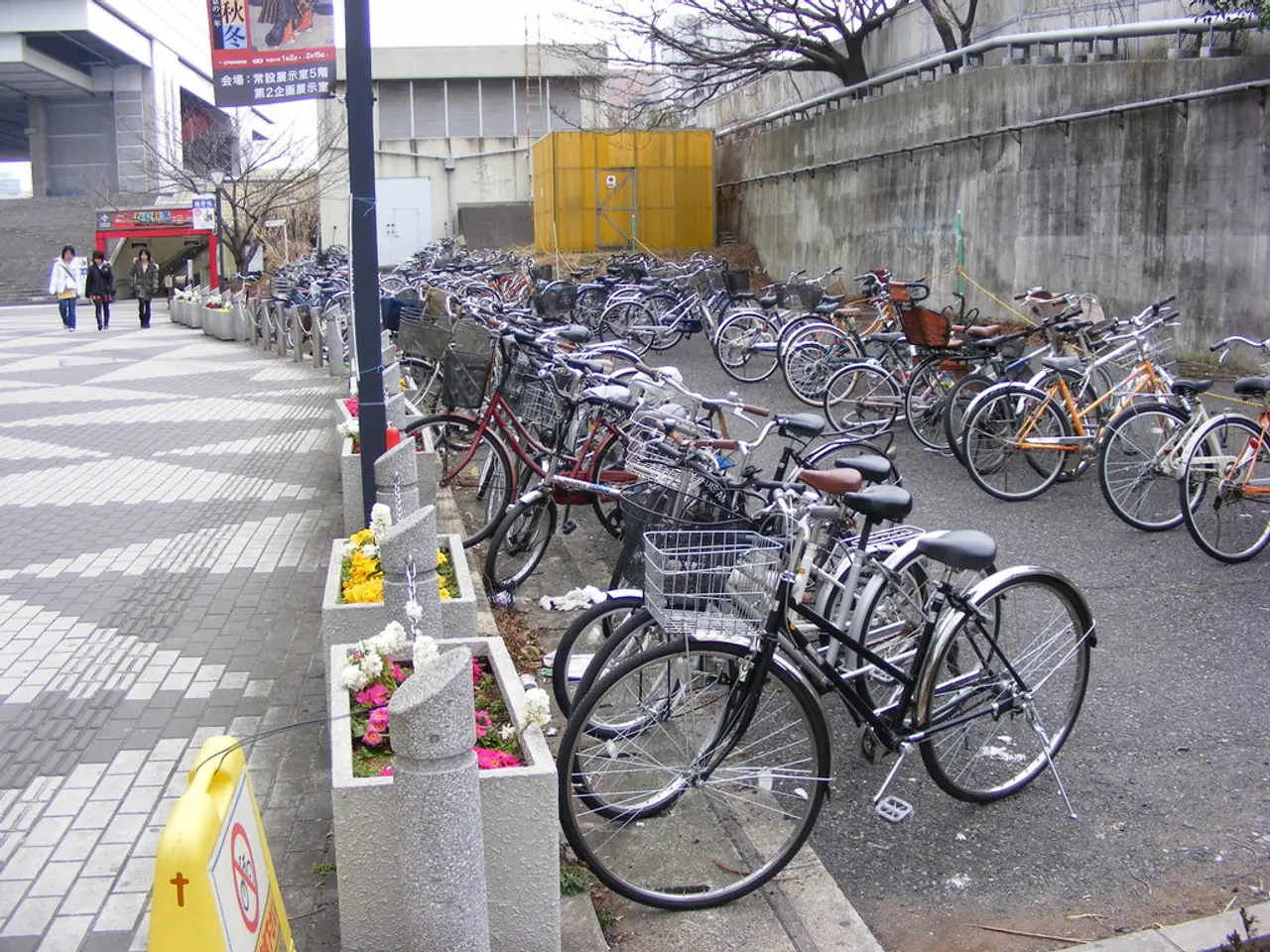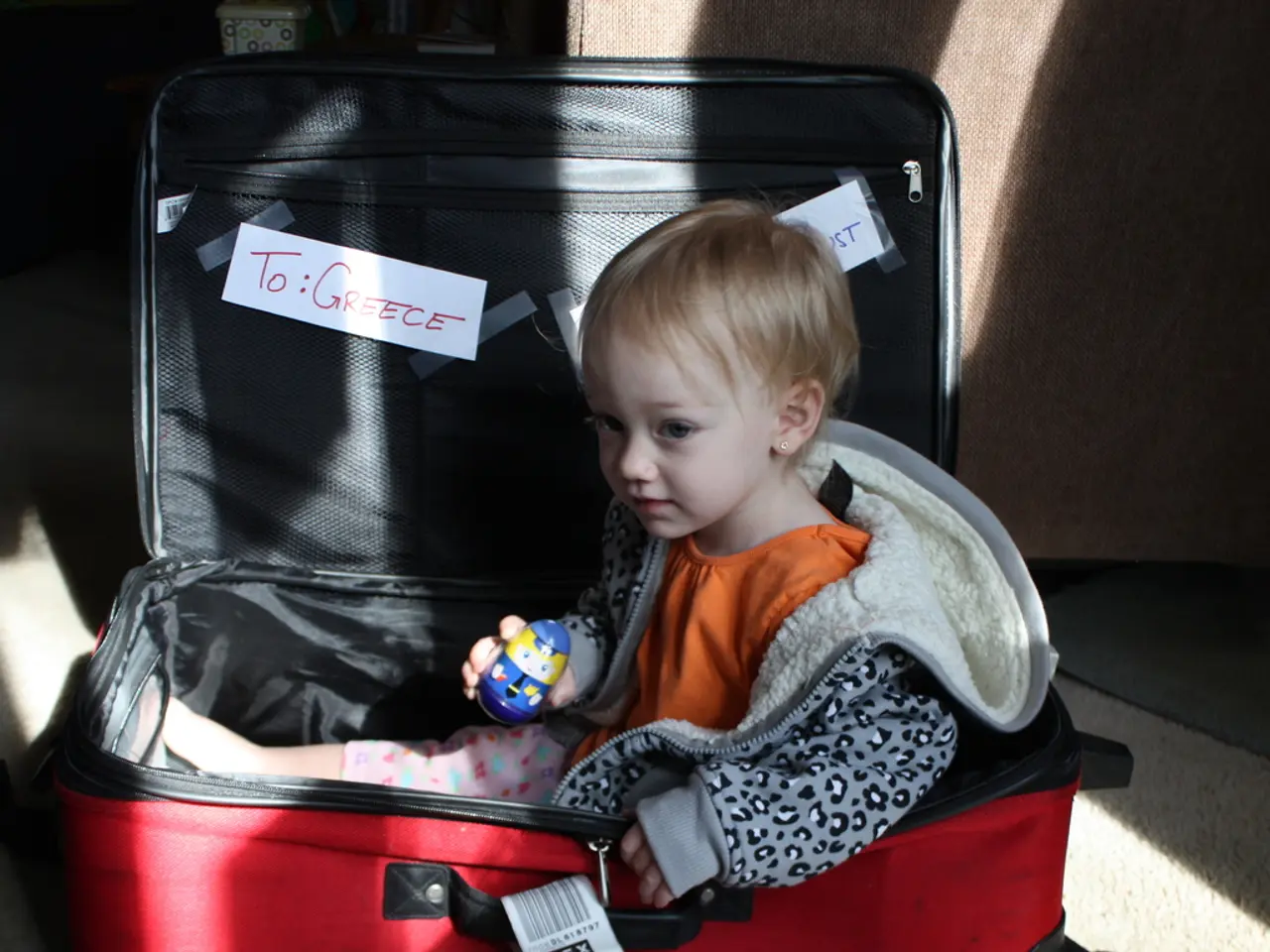European Union persistent in combating terrorism on multiple fronts
In the heart of Bremen, Germany, the German-Israeli Society recently gathered on the market square for a vigil, reflecting the international concern surrounding the ongoing conflict in the Middle East.
Mayor Dr. Andreas Bovenschulte, a long-standing advocate for peace, was present and gave a speech, expressing his deep concern about the suffering caused by the recent terrorist act in Haifa, Israel. The image, taken by the Senate Press Office, shows Bovenschulte with a sombre expression, emphasising his solidarity with the people affected.
Bovenschulte spoke about the ongoing suffering of people in Israel, the Gaza Strip, Lebanon, and now also in Lebanon. He emphasised the importance of respecting Israel's right to exist and the rights of the Palestinians for peace.
The path to lasting peace, according to Bovenschulte, is not easy, and there are no patent solutions. However, he believes that a two-state solution is still the most convincing alternative to achieving lasting peace. He expressed solidarity with Israel's right to defend itself and its citizens against terrorist attacks, but also noted that the politics of Israel can and should be criticised.
As of August 2025, the peace negotiations between Israel and Palestine remain stalled with significant challenges. A ceasefire accord was reached between Israel and Hamas in January 2025, but this ceasefire collapsed in March 2025 after Israel launched airstrikes in response to Hamas's refusal to release hostages, resuming active conflict in Gaza.
Despite the conflict, at the international level, there is near-universal consensus to pursue the two-state solution. The United Nations held preparatory conferences in July 2025, emphasising that the two-state solution remains the only way to satisfy the legitimate aspirations of both Israelis and Palestinians and to achieve regional peace and stability.
The New York Declaration of August 2025, supported by multiple states, calls for both sides to resume negotiations in good faith with international guarantees, aiming for a sovereign, democratic Palestinian state alongside secure Israel, ending occupation and violence.
Long-standing issues complicate negotiations, including hostages and prisoners, Israeli control over Gaza’s borders, Hamas's political role, and the broader question of ending occupation and establishing Palestinian governance without Hamas dominance. Previous peace efforts dating back to the Oslo process and Camp David 2000 have failed to resolve core issues such as borders, refugees, Jerusalem, and security.
In his concluding remarks, Bovenschulte wished for peace in Israel and the entire region, emphasising that Jews should not feel threatened again in Germany, a sentiment shared by many around the world. He urged for continued dialogue and diplomatic efforts towards a peaceful resolution to the ongoing conflict.
[1] "Gaza Ceasefire Collapses After Israel Launches Airstrikes." BBC News, 7 March 2025. www.bbc.com/news/world-middle-east-55868995
[2] "Israel-Gaza Ceasefire: What Happened?" Al Jazeera, 7 March 2025. www.aljazeera.com/news/2025/3/7/israel-gaza-ceasefire-what-happened
[3] "The Oslo Accords: A Timeline." BBC News, 13 September 2020. www.bbc.com/news/world-middle-east-54254222
[4] "New York Declaration on the Peaceful Settlement of the Israeli-Palestinian Conflict." United Nations, 31 August 2025. www.un.org/unispal/document/auto-insert-2017/s-2025-343e.doc
[5] "UN Prepares for Peace Conference on Middle East." United Nations, 29 July 2025. www.un.org/press/en/2025/sc14186.doc.htm
- The ongoing conflict in the Middle East, as portrayed by the events in Haifa, Israel, is a topic of grave concern, not just for the German-Israeli Society in Bremen, but also for international politics, war-and-conflicts, and general news.
- At the United Nations, there has been an ongoing effort to achieve a two-state solution for the Israel-Palestine conflict, with the New York Declaration calling for both sides to resume negotiations and work towards a peaceful resolution, emphasizing the importance of politics and regional stability amidst the ongoing violence and war-and-conflicts.







